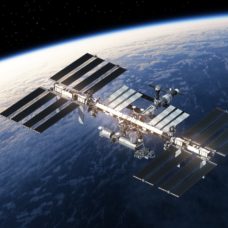Despite not receiving official Ghanaian support, a team of researchers from the African country launched the continent’s first satellite, GhanaSat-1, in June 2017.
With the USA trying to regain its lead in Space Race 2.0 despite an overall push toward collaboration in the field, Africa is increasingly relevant in the conversation after the launch of a CubeSat developed by Ghanaian engineers at the All Nations University College.
Nigeria also launched a CubeSat into orbit on the same mission. According to Elsie Kanza, Head of Africa at the World Economic Forum, “Several nations, such as South Africa, Nigeria, Kenya and Ethiopia have space agencies.”
And other nations have stepped up to aid in African space technology development. JAXA, Japan’s space agency, supplied much of the training and equipment necessary for the Ghana team to develop the CubeSat.
The SpaceX CRS-11 Cargo Mission Launch
The GhanaSat-1 was included in the SpaceX CRS-11 Cargo Mission, which, as we mentioned, also brought Nigeria’s first satellite into orbit.

The mission was launched aboard a SpaceX Falcon 9 rocket and Dragon spacecraft from NASA’s Kennedy Space Center pad 39a–which was also the site for a more recent cargo mission that sent Canadarm 2 to the International Space Station.
GhanaSat-1 itself was built by a team of engineers including Benjamin Bonsu, Ernest Teye Matey, and Joseph Quansah of All Nations University College. The satellite itself will communicate data to Space Systems and Technology Laboratory at ANUC.

Where to Next?
Now that Africa has a stake in the space race thanks to international collaboration, there’s only one way to go: up–or out, or away–depending on how you look at it.
The team hopes that information gathered by the satellite will aid in monitoring Ghana’s coastlines and reinforce high school space technology curriculum. Ghana President Nana Akufo-Addo highlighted the proud moment for his country by Tweeting to the team directly.
In addition, Richard Damoah, an assistant NASA research scientist told TechCrunch: “We are looking to develop a GhanaSat-2, with high resolution cameras, that could monitor things such as illegal mining, water use, and deforestation in the country.”
As much as we enjoying playing up the Space Race, we’ve said before that collaboration is key to the future of our globalized Industry 4.0 and IoE economy. The more nations putting resources into the pioneering minds of space exploration will mean better, faster, and more well-rounded developments in the field.



















Comments (0)
Most Recent